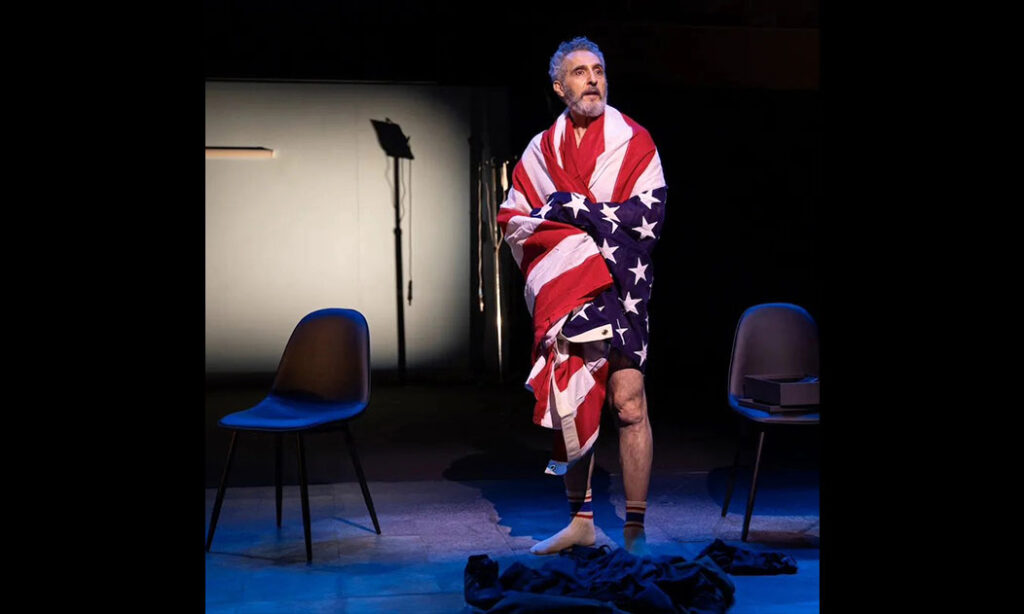Reality dangles precariously on the strings held by the puppeteer. Hidden behind the scenes, this master of illusion exerts an invisible hand to create a world of its own in a small space. It is a world familiar to Mickey Sabbath, an aging, manipulative and sex-obsessed puppeteer, who is the subject of Sabbath’s Theatre, a new play by Ariel Levy and John Turturro, based on the Phillip Roth novel of the same name.
The play, which recently concluded its run by The New Group, evokes the eerie pathos of Sabbath’s life as he approaches death, and his own reality frays, evidenced by his imaginary encounters with people from his past. Supporting the play is a phantasmagorical lighting design by Tony Award winner Jeff Croiter that relied on the CHAUVET Professional COLORado 2 Solo Batten for part of its haunting effect.
Describing the overall mood conveyed by the production, Croiter noted: “The set is very simple, and not realistic, so lighting and video take the audience from one place to the next. At times, it was more important to have a dynamic shift, even if that meant breaking with reality.”
Rather than focusing on advancing the narrative of the play, Croiter used his lighting to support different events in this episodic, dream-like drama, in which Golden Globe winner Turturro played the leading role. Sticking to a tight, subtle color palette, Croiter leaned heavily on the interplay of light and shadow to capture the mood of each moment in this compelling story.
“The scenery in this play is far from realistic, so the lighting wouldn’t look real even if I wanted it to, but there is still a nod towards real,” he said. “Since Sabbath is a former puppeteer, we used the motif of silhouetted images as a nod to that. We also use lighting to carve the space. Many of the scenes are very small and lighting creates the necessary focus.”

Helping Croiter create his subtle, evocative effects with light were 12 COLORado 2 Solo Battens. The RGBAW linear fixtures were used to backlight and color tone the upstage curtain when the set’s video was not in use. When the COLORado units weren’t lighting the curtain, the fixtures were used to colorize the upstage floor.
“The curtain had to be backlit since there was no front light position that would hit the curtain without shotting through things we didn’t want to light, such as actors and scenic pieces,” said Croiter. “The angle we used, and the placement of the lights, were chosen so we could light both the curtain and the floor. Since these fixtures were called upon to light two planes, their zoom range was very important to us.”
Supported by programmer Wylder Cooper, assistant LD David Heguy, and electrical assistant Evan Roy, Croiter adroitly used his fixtures to create deeply evocative images, with no set change, only a lighting shift to distinguish scenes.
One such scene comes at the conclusion of the play when Mickey Sabbath is in a hospital room draped in a flag. “The hospital is tightly lit, mostly cold, with only a hint of warmth. Sabbath imagines himself on a beach; it is one of the only times when the space is fully lit. Most of the space is blue, suggestive of the sea. Then there is a yellowish light on the wall, the last remnants of sun at the end of the day. The play then ends.
Although the play may end at that point, the story of Mickey Sabbath continues to play itself out in the minds of the audience, leaving them to ponder the drama they had just seen. Such is the magic of a puppeteer.
Photo: © Jeeah Moon and Monique Carbon